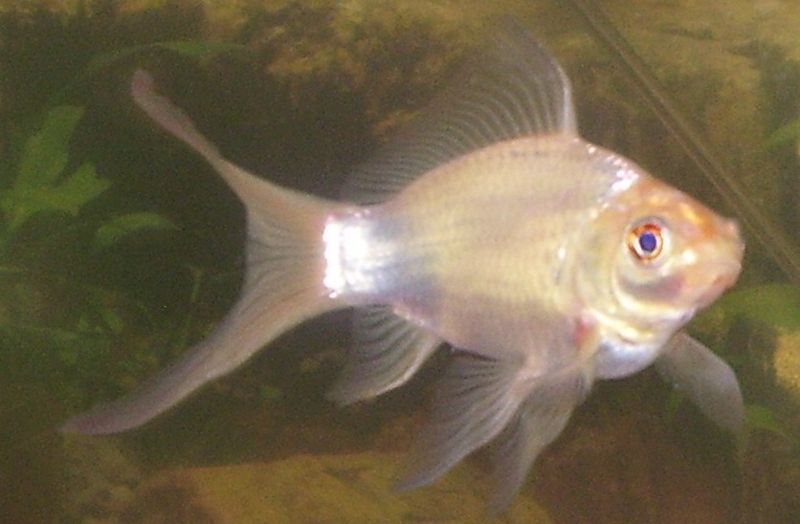 The comet or comet-tailed goldfish is the most common variety of fancy goldfish in the United States.[1]
The comet or comet-tailed goldfish is the most common variety of fancy goldfish in the United States.[1]
Origins
The comet-tailed goldfish is an American development.[1][2] The first one appeared in the ponds of the U.S. Government Fish Commission in Washington in the early 1880s. It has been developed from common goldfish stock by Hugo Mullert, a government worker. Mullert was the first person to place the comet onto the fishkeeping market in quantity.[3][4] Comets are known as kometto in Japan.[5]
The comet-tailed goldfish is an American development.[1][2] The first one appeared in the ponds of the U.S. Government Fish Commission in Washington in the early 1880s. It has been developed from common goldfish stock by Hugo Mullert, a government worker. Mullert was the first person to place the comet onto the fishkeeping market in quantity.[3][4] Comets are known as kometto in Japan.[5]
Description
The comet goldfish can be distinguished from the common goldfish by its long, single and deeply forked tail fin. Comets with yellow, orange, red, red-and-white color are common. Due to the comet's hardy and active nature, and the relative ease in caring for them, they are best suited to ponds and outdoor pools.[2][1] Comet-tails can grow up to 12 inches in length.[1]Sarasa Comets have long flowing fins and are very hardy fish. They can be kept with koi in an outdoor pond.
Variants
Sarasa comets are characterized by their red-and-white coloration and resemble the Kohaku color pattern in koi.[4] The word sarasa is of Japanese origin.[1]
The Tancho single-tail is similar to the comet-tail but it has a silver-colored body and finnage with a red patch on the head.[2]
Sarasa comets are characterized by their red-and-white coloration and resemble the Kohaku color pattern in koi.[4] The word sarasa is of Japanese origin.[1]
The Tancho single-tail is similar to the comet-tail but it has a silver-colored body and finnage with a red patch on the head.[2]
Goldfish farming market
Goldfish are commonly bred on fish farms in many parts of the world such as the Far East, Middle East, Europe and the United States. In most instances, the millions of fish produced each year end up in pet or aquarium centers for sale to aquarists. However, in North America, there is a demand for goldfish used as bait or "feeder fish" to other fish by anglers. [2]
Due to the relatively inexpensive prices of comets and the common goldfish, they also become toy prizes in carnivals or other places of entertainment. This practice was intended to be made illegal through a bill such as the Animal Welfare Bill (July 14, 2004) in the United Kingdom, but was unsuccesful.[6][7]
Due to the relatively inexpensive prices of comets and the common goldfish, they also become toy prizes in carnivals or other places of entertainment. This practice was intended to be made illegal through a bill such as the Animal Welfare Bill (July 14, 2004) in the United Kingdom, but was unsuccesful.[6][7]










No comments:
Post a Comment